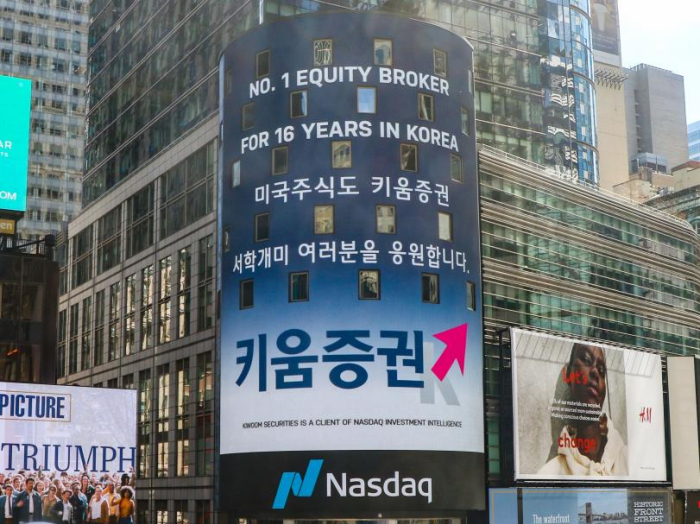Brokerage firms enjoy rising bets on global derivatives
By Apr 14, 2021 (Gmt+09:00)
MBK’s Korea Zinc takeover attempt to spur search for white knights


Korea Zinc, MBK face proxy war for zinc smelter


Korea Zinc shares skyrocket after buybacks in tender offer


Lotte to liquidate rubber JV in Malaysia, sell overseas assets for $1 bn


Samsung to unveil 400-layer bonding vertical NAND for AI servers by 2026



South Korean brokerage houses enjoyed a bumper year in 2020 with a record fee income from global derivatives trading, driven by retail investors' venture into overseas futures and options markets.
Their increased risk tolerance was met with brokerage firms' aggressive marketing, including fee cuts, pulling the transaction value of global derivatives products by domestic investors almost 50% higher in 2020 from a year earlier.Kiwoom Securities Co., the country's most popular online stock trading platform, was the biggest beneficiary. It posted a 171% surge in fee incomes to 126.3 billion won arising from trading of overseas derivatives products. That figure far outweighed the 74.4 billion won it earned in fees from overseas stock trading in the same year.
In total, overseas derivatives trades generated a combined 339.2 billion won ($302 million) in fee incomes last year for the country's 12 brokerage companies that deal with global derivatives, up 64.8% from a year earlier, according to the Korea Financial Investment Association on Apr. 13.
Korean brokerage firms' fee incomes from overseas derivatives trading:
| Company | At end-2019 | At end-2020 | Yr-on-yr growth |
| Kiwoom Securities | 46.6 billion won | 126.3 billion won | 171% |
| Kyobo Securities | 54.7 billion won | 72 billion won | 31.6% |
| Korea Investment & Securities | 24.8 billion won | 32.4 billion won | 30.6% |
| Ebest Investment & Securities | 17.6 billion won | 28.5 billion won | 61.9% |
| Hana Financial Investment | 17 billion won | 23.5 billion won | 38.2% |
| Source: Korea Financial Investment Association | |||
Last year, the transaction value of domestic investors' overseas derivatives swelled by 45.6% to 7.8 trillion won from a year earlier. The retail frenzy about overseas derivatives showed no signs of fizzling out. In the first three months of the year, the transaction value stood at 2.4 trillion won, almost one-third of the 2020 total.
Overseas derivatives products include futures and options based on indices registered with global exchanges, or commodity or energy futures. Futures trading takes up the majority of the derivatives investments, given their higher trade value per contract than other derivatives.
The high-frequency trading of derivatives and their high fee rates compared to spot market products have made it a lucrative source of brokerage revenue.
"The 2020 results were the consequence of our aggressive marketing when volatility in global derivatives markets went up sharply early last year," said a Kiwoom Securities source.
Kiwoom, which means nurturing in Korean, contributed to the derivatives investment boom by cutting the minimum deposit required for overseas derivatives trade. Last month, it hung an advertising placard in Times Square, New York, promoting it as a trading platform for the US-listed stocks.
"Micro Nasdaq 100" was Kiwoom's most popular derivatives product for retail investors last year, accounting for 38% of trading executed on its platform. "Crude oil futures," "Mini Nasdaq" and "Micro Gold" came next with a share of 9%, 9% and 8%, respectively.
LEGAL GAMBLING MARKET?
But the surge in overseas derivatives trade prompted concerns from some asset managers.
"South Korea is the only country in the world where retail investors' trading of overseas derivatives, which are a hedging tool for institutional investors, reached such a high level," said an asset management head in Seoul.
"Brokerage companies' aggressive marketing seems like they are encouraging retail investors to bet on derivatives. It means they will become a gambling manager," he added.
A domestic brokerage company executive said his company has refrained from marketing overseas derivatives products on concerns they could have negative consequences going forward.
Write to Yun-Sang Ko at kys@hankyung.com
Yeonhee Kim edited this article.







